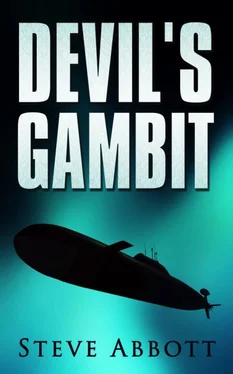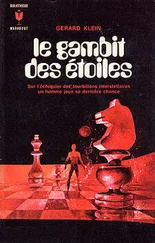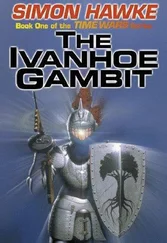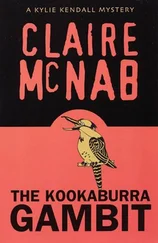Zatolutin, who had been listening quietly to the doctor’s explanation, spoke up for the first time. “All three men were issued a three-day leave before the duty period, when they stole the warheads. I have a report from the guard at the gate that they all looked extremely worn out when they returned.”
Sturmovic felt the slow burn of anger growing inside him. Someone had used drugs to control his men and he had a good idea of who the scum was.
“There is only one man around here who deals in drugs of this type.”
Sergei Smirnoff was very well known to Sturmovic. He hated the use of drugs among his men, but there had been little he could do to stem the tide. Raids on local establishments had failed. Smirnoff was too slippery and too well-informed to allow himself to be caught. Sturmovic had been forced into a compromise that he now regretted. As long as there was no decrease in performance, he let the Sergeants and senior officers deal with transgressors in their individual groups.
“It appears that we will have to pay a visit to Comrade Smirnoff. I would love to hear his opinion of all this.” Sturmovic dropped the bullet on the chest of Pieter’s body, turned and walked away from the dock.
Zatolutin ran after him, struggling to catch up.
Sturmovic wanted to put this scene of personal failure far from him. He moved towards the only sensible clue available to him, Smirnoff. He stopped at his personal transport only long enough to grab his AK-74. The GRU commander was just steps behind him.
“Nikolay, I would be of more use to you, if you could tell me what you are about to do with that rifle.” The GRU officer was a good soldier, every bit as ashamed at his and his men’s inability to detect and stop the theft.
Sturmovic turned and looked at the man, his face dark and foreboding. “Smirnoff had something to do with this. I intend to find out exactly what.”
The GRU officer looked at the rifle in Sturmovic’s right hand. “We can’t just go and attack private citizens, Nicolay.”
Sturmovic chambered a round in the assault rifle. “Smirnoff does not readily respond to the niceties of culture and conversation.” He flicked the safety latch on. “And he has no respect for the law or the police. In this case, I agree with his assessment. The rifle is just a tool to get his attention.”
Zatolutin nodded. “Everything is always personal with you Nicolay. If Smirnoff is involved, I would think for him it will all be strictly business.”
“It is my men who are dead. For me, you are right, it is personal.”
“I would be remiss if I were to let you embark on such a visit without a security escort.” Zatolutin gave Sturmovic a sly smile.
Sturmovic smiled back. “Yes, I suppose you would be. And who would you have accompany me on this visit?”
“Myself and two very dangerous Sergeants.”
Sturmovic reached inside his vehicle again and threw his back up AK-74 to the GRU officer. They walked over to the BTR-60 guarding the road to the dock. Zatolutin waved to two burly Sergeants standing by his personal UAZ. They secured their gear and followed the GRU commander and Sturmovic.
It was a tight fit within the cramped confines of the BTR-60. Sturmovic clapped the Corporal in the driver’s seat on the right shoulder. “Head into Batumi. I’ll give you directions as we go.”
Smirnoff was enjoying himself with two of his more exuberant girls, when the door to his room was kicked in and a small olive object hurled through it. He had just enough time to wonder where his bodyguards were before the Polish-made stun grenade went off.
The explosion knocked Sergei and his companions to the floor. Deaf and partially blinded, he struggled to get to a weapon. A boot landed between his shoulder blades, smashing him to the floor. The cool steel of a rifle barrel was pressed against his head, just behind his right ear.
Nicolay Sturmovic’s voice cut through Sergei’s fog of pain. “I would consider lying very still right now, Comrade Smirnoff. Very still.”
CIA HEADQUARTERS, LANGLEY, VIRGINIA
“Now you know as much about the man as I do.” Sir Arthur Harris wound up his dissertation of Verkatt’s activities, past to present, by placing his coffee cup on the cherry wood table. The current Director of MI6 could feel his fatigue growing. The flight across the Atlantic and the time difference were all playing hell with his circadian rhythms. He had been intrigued by the accident of communications, not to mention the content of the FLASH Traffic message. How much intelligence of this sort did the Americans keep from their British allies? Even though the special relationship was in place, Sir Harris knew the Americans were not candid about certain aspects of their operations.
The Director of the CIA, Gerold Babitch, a swarthy Kentuckian, sat back in his high leather chair and digested this latest information. What value it had on the FLASH Traffic out of Russia, he did not know. They paid analysts to figure out that stuff.
For years the CIA had tried to get agents of value placed in South Africa, but they were the new kids on the block and now, under the current enlightened government, it didn’t seem as high a priority anymore. The British, though, had maintained whole families of spies in the country since the time of the Boer War. The burden of intelligence gathering and when needed, counter intelligence, handed down from father or mother to son or daughter, generation after generation.
Babitch was surprised when Sir Harris flew over himself to handle the briefing on the Russian situation. Babitch didn’t particularly like Sir Harris. He found the British Spymaster a daunting figure. He reminded Babitch of an extra demanding law Professor he studied under at Harvard.
Sir Harris took a sip of coffee. “I am surprised that you were unaware of the depth of Mister Verkatt’s activities. Illegal nuclear trade is, after all, a very hot topic for your lot. You do have a mission in Monrovia, just up the coast. Surely your station in the Belgian Congo keeps tabs of North Korean activities there.”
“Thanks to budget cuts, we had to cut the Belgian Congo operation back. Add to that, Angola is about ready to come to a boil again, and there’s a civil war going on in Liberia. My manpower there is less than thin, it’s anorexic. Besides, Africa’s always been your area. You guys have always paid more attention to it than us.”
“Consider it a colonial thing, the good of the Commonwealth and all that. Our friends in North Korean are up to something in the Congo. My sources in the region say that the mission there is in a bit of a panic. Somebody high up has gone missing, and the Ambassador has been recalled to Pyongyang. Now, do you think our good friend Mister Verkatt could be involved in any of that?” Sir Harris leaned forward, his face serious. “I find events like that very odd, unlikely even. Why do you think I am here, Mister Babitch, because I like the way your secretary makes coffee? Three nuclear warheads are missing, final destination unknown. My office needs to know what is going on with your end of this. My country has had too many nasty surprises served to us over the years. We would like to avoid nuclear weapons in Piccadilly Circus if we could.”
Babitch sat back in his chair and opened the top drawer of his desk. He extracted a series of black and white photographs. “These were taken in Batumi, Georgia, in the former Soviet Union yesterday. Three of the bodies are officers from the Strategic Rocket Forces base there. The fourth? Well, nobody knows who he is yet, but it’s a good bet he’s a former citizen of East Germany, probably ex-STASI, but then who the hell his age wasn’t?” He slid the pictures across the desk to Sir Harris.
Читать дальше













